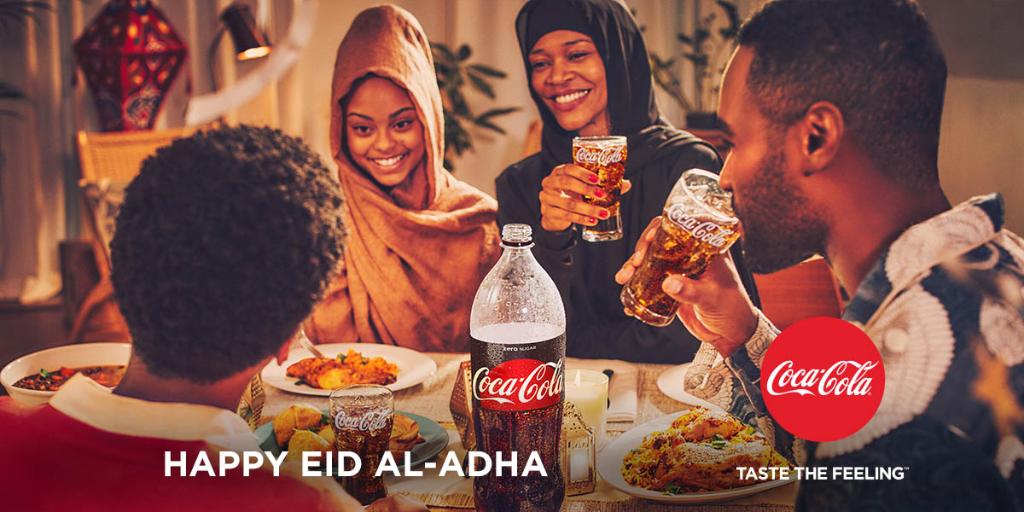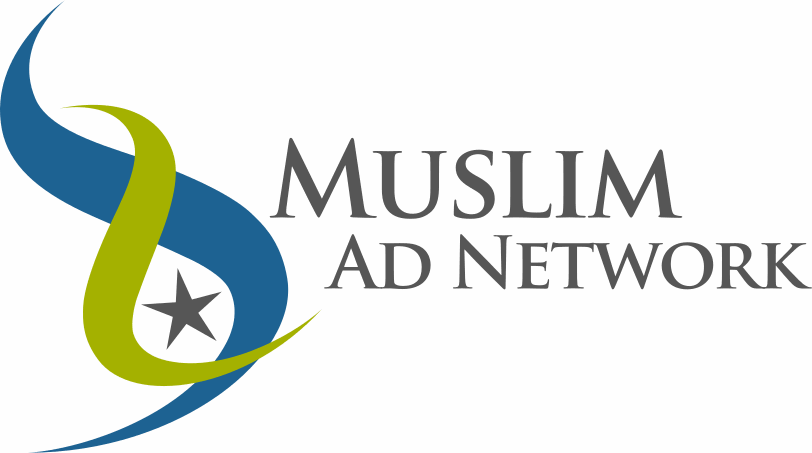
Muslim Ad Network asked some marketing/branding experts to analyze past Eid-Ul-Adha adverts by mainstream brands, such as Samsung, OM0, Coca-Cola, and Nestlé. Do they use any of the sentiment and history behind Eid-Ul-Adha in their advertisements?
Eid-ul-Adha is one of the two Eids celebrated by Muslims around the world. It centers around prayer and animal sacrifice and marks the end of the Islamic pilgrimage (Hajj). Muslims sacrifice sheep or other cattle on this day. A third of the meat is eaten by the family and the rest is distributed to the poor. Eid-ul-Adha always falls on the tenth day of Dhul Hijjah, the twelfth month of the Islamic Hijri calendar.
In one of our articles on How to Create an Inclusive Eid Ad Campaign we recommended the following for mainstream brands that plan to target a Muslim audience during Eid:
- Use neutral messaging in your Eid advertising
- Diversify Eid ad content but avoid tokenism
- Make your content accessible
For this article, we asked Muslim marketing/branding experts to comment on previous Eid-Ul-Adha ads by mainstream brands:




Maylene Seah a Brand strategist, and Branding & Packaging Design Expert at her company Noor Anisa helps high-reaching Muslim businesses get unstuck and level up.
She said: “From my first gut reaction, I didn’t identify so much with Coca-Cola’s advert. I took a little offense to the cookie becoming the dome of a masjid by Nestlé. I usually have no problems with decorated biscuits cut out in the shape of a masjid, but for some reason, this feels a little contrived from a big brand. For the OMO ad, it might resonate with many, but not so much with myself as I don’t eat that much meat (and possibly a small portion of vegan Muslims I know). I do think there’s something great about the line, just not necessarily the execution. I would have liked it better if it said “enjoy the feast, we will handle the stain”. I felt as if there was a lot of emphasis on the “meat” because of the Qurbani but not the general spirit of what Eid Adha means to Muslims, and therefore many of these ads feel a bit patronizing. As for Samsung, that could be an ad for anyone and anything, it’s not really targeted, it doesn’t give an emotional motivation to buy something from Samsung and how that’s going to make someone’s Eid celebrations better – all they did was slap on the word Eid. That word could have been swapped for Christmas or Easter and still be ineffective except for someone who’s intentionally on the lookout for offers.”
Kassim Razak is an Advertising & Marketing Communications Graduate, with 5+ years of experience in customer retention, sales, and marketing.
He said: “I feel that the advertisements for Samsung and Coca-Cola overlook the personal nature of Eid Ul Adha. I feel that corporations overemphasize their brand while ignoring the significance of the occasion. On Christmas Day, you do not have a refrigerator and a television ad telling you to buy something because it is a family day. In addition, Coca-Cola lacks attention to detail as the image does not depict the correct cuisine eaten on Eid and does not appear real. Before displaying a product, it is essential that advertisements define Islam. I feel like Nestlé is creative with the cookie having said that, it’s lacking the purpose of what Eid-Ul-Adha is. I think the advert by OMO with the ‘enjoy the meat we clean the stains’ would have been a great follow-up advert if it had something more connected to Eid-Ul-Adha but the advert makes no sense to me.”
Elena Nikolova founder of Muslim Travel Girl is the first woman to become a Chartered Islamic Marketer (CIMA) in the UK, she has over ten years of marketing and branding experience.
She said: “Personally, I find that the brands are not on point with the marketing in the majority of them. I would say the one closest to getting it right is the Coca-Cola one simply because it shows a family with the spirit of Eid being family gatherings. They are not really there but closer than the rest. I find that the OMO and the Nestlé one can be seen as offensive as they don’t understand the culture and the sustenance that is required with the EID holidays. They only know the ritual so they miss the point. OMO could have done something like, enjoy your family this eid while we take care of the tough stains or something like with kids running around a garden with family and a big celebratory table. Many marketing experts don’t delve deep into the consumer behavior or the physiological values of their clients or customers so they miss the mark. Muslims are much more than just their outer picture and if marketers get it right they will have loyal customers. We want to be identified not just in Islam but also as humans and many miss that point.”
Abbey Claire Dela Cruz, Marketing Manager at Poptin, which is a SaaS company that helps online businesses convert more visitors into customers, leads, and subscribers.
She said: “At first glance, both Coca-Cola and Samsung seem like just ordinary ads you can see every day. They don’t particularly highlight the essence of the holiday. The Coca-Cola ad doesn’t look real either. The OMO ad looks smart. It captures attention and is pretty much very relevant to the Muslim community, although it alienates those Muslims who don’t eat much meat. The Nestlé ad without a doubt pertains to the Eid holiday even at just the first look. For me, it just looks a bit old, and using food as a replacement for real-life elements is kinda overused by food brands. So it doesn’t really make much of a difference. All in all, these comments are just my two cents. Same with your Eid pop-up campaigns on your website, the copy and design still matter based on who your target audience and business goals are. After all, your focus is to make your customers feel valued and recognized by providing relevant offers, especially during this time of the year. You’ll be surprised at how ads and website popups can help you boost sales and increase conversions.”
Aimen Safiullah is the founder of Muslim Empowerment which is a high-performance business coaching company for Muslim professionals.
She said: “Nestle is definitely offensive and not respective to the Holyness that a Masjid symbolizes in our Deen (religion). Omo ad is creative surely but it does not clearly represent Eid-Ul-Adha and the sheep horns made from bubbles are not something that one picks easily. (I had trouble finding anything relevant to Eid Adha and only picked the horns because you told me these are Eid Adverts) Coca-cola – this one is although nothing too different from the other type of Ramadan ads, it still is the most relevant to Eid, fully represents the concept of the family during Eid festivities, and the messaging is on point. It’s a great ad!
The pictures for the Samsung one of the sale items are exciting. Maybe if they added a symbol of Eid-Ul-Adha on it, it’d hook the reader more instantly.”
Conclusion:
The mainstream brands covered in this blog post have tried to target the Muslim audience but have failed to deliver their message. Eid-Ul-Adha is about sacrifice, helping those in need, and being with family. They would need to delve more into the meaning behind the celebration in order to create a more targeted Eid advert that resonates with Muslims around the world.
We would like to thank all our experts for their time and contribution.
Have you thought about your Eid ads? Do you want to work with the largest most experienced Muslim advertising company in the world? Contact Muslim Ad Network today and we will help you reach millions of Muslim consumers online in the most efficient manner.
[button text=”start targeting muslim consumers” color=”success” style=”shade” size=”xxlarge” animate=”blurIn” radius=”10″ depth=”4″ depth_hover=”5″ link=”https://muslimadnetwork.com/get-started/”]